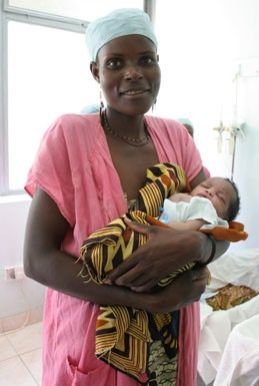Tanzania: Doctors? Strike Exacerbates Chronic Shortage Of Health Care Workers In Poor African Country

A strike by doctors in Tanzania over pay has metamorphosed into something quite ugly over claims that government forces kidnapped and tortured the leader of the striking physicians in order to dissuade him from pursuing wage demands.
The president of Tanzania, Jakaya Kikwete, has denied that his security forces physically abused Steven Ulimboka, the chairman of the Medical Association of Tanzania, who was allegedly seized at his home last week and later beaten and dumped outside the city of Dar es Salaam.
A doctor treating him told BBC that his fingernails had been removed.
I am aware that the government is also being named in the list of suspects. I am very shocked by these suspicions. ... Why would the government want to harm Dr. Ulimboka? Kikwete said in a television address on national television on Sunday.
Kikwete has ordered an investigation into Ulimboka’s disappearance but cautioned that the doctors’ demand that their salaries be tripled -- from 950,000 Tanzanian shillings ($620) per month to 3.5 million shillings, plus allowances -- are unreasonable and suggested they should resign from such a low-paying profession if they are displeased,
The government was willing to offer a maximum salary of 1.2 million shillings, noting that doctors already earn double the average salary of Tanzania’s public sector workers.
I urge doctors to end the strike and return to work. Your fellow Tanzanians are suffering and losing their lives, the president said.
The president also cited that public sector pay already accounts for almost half (48 percent) of the government’s budget.
This level is too huge. A good ratio is to have a wage bill not exceeding 35 percent of the budget so 65 percent of the budget can be used to finance services and other development projects, he added.
Tanzania is one of the poorest nations on Earth, with one of the weakest health care systems.
According to the United National Human Development Report, Tanzania had only two physicians per 100,000 residents as of 2007 -– tied with two other African states, Malawi and Niger, for the lowest such rate on the planet. (By comparison, Belgium had 449 doctors per 100,000 Belgians.)
Given that Tanzania has a population of some 45 million, the country likely has less than 1,000 doctors. And those precious few physicians are overwhelmed by a nation reeling in dire indigence (more than one-third of the population is trapped in poverty), low life expectancy, rapid population growth, very low incomes and poor access to medical care.
The WhoCares Campaign of The Touch Foundation cited that case of Dr. Leonard Subi, the only doctor in Kahama, a district with 1 million people.
“The hospital staff is comprised of too few nurses and assistant medical officers, and they are overwhelmed,” the campaign said.
“They must care for two or three patients per bed, and they lack basic equipment. For patients, the consequences are dire. Many pregnant women cannot reach the hospital. Of those who do, at least one dies every week giving birth.”
This scenario plays out all across Tanzania.
“Maternal mortality rates and fertility are showing only minor or no improvement, and almost four out of every 10 children under the age of five years old are chronically undernourished and too short for their age,” said a report from the World Bank.
Indeed, the strike is making an already bad situation far worse.
WhoCares noted that one out of every nine children born in Tanzania will die before reaching the age of five in a county where the average life expectancy is only 52 years.
Eighty-five percent of Tanzania’s population live in remote rural areas, requiring lengthy arduous walks to the nearest physician -- even for pregnant women about to go into labor, as WhoCares noted.
Even when a patient reaches a facility, he may find long waiting lines and a lack of necessary medicines.
Medical facilities and hospitals in Tanzania are also subject to frequent power shortages, exacerbating poor existing infrastructure.
“Only 50 percent of Tanzanian public health facilities receive electricity from the grid that makes it impossible to refrigerate sensitive items, like blood used in transfusions, or conduct safe operations,” added WhoCares.
© Copyright IBTimes 2024. All rights reserved.




















